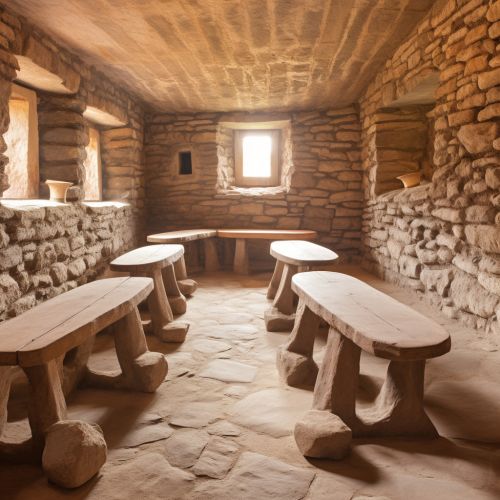History of Education
Ancient Civilizations
Education has been a cornerstone of human society since the dawn of civilization. The earliest known formal education systems were established in the ancient civilizations of Mesopotamia, Egypt, and Indus Valley.


In Mesopotamia, education was primarily focused on teaching young boys the skills needed for scribe work, such as reading, writing, and arithmetic. This was done in schools known as 'Edubba', which translates to 'tablet house'. The curriculum was rigorous and discipline was strict.
In ancient Egypt, education was also primarily for boys, with the aim of preparing them for roles in the administration. The education system was closely tied to the religious institutions, with most of the education taking place in temples.
In the Indus Valley civilization, evidence of early education has been found in the form of inscriptions on seals and pottery. The exact nature and extent of education in this civilization, however, remains a mystery due to the undeciphered script.
Ancient Greece and Rome
The education systems of ancient Greece and Rome had a profound influence on the development of Western education.
In ancient Greece, education was a private matter, with parents employing tutors or sending their children to private schools. The focus of education was on developing the mind and body, with subjects such as grammar, music, gymnastics, and philosophy being taught.
In ancient Rome, education was initially a private affair, but gradually became more organized and state-controlled. The curriculum included reading, writing, arithmetic, music, and physical education. The Roman education system was heavily influenced by the Greek system, particularly in the areas of arts and philosophy.
Middle Ages
During the Middle Ages, education was primarily provided by the Church. Monasteries and cathedral schools were the main institutions of learning, and the curriculum was heavily focused on religious studies.
In the Islamic world, education was highly valued. The Madrasa system of education, which combined religious and secular studies, was established. This system spread throughout the Islamic world and had a significant impact on the development of education in Europe.
Renaissance and Enlightenment
The Renaissance and Enlightenment periods marked significant changes in the approach to education. The Renaissance saw a renewed interest in the classical knowledge of Greece and Rome, leading to the establishment of humanist schools.
During the Enlightenment, the idea of public education emerged. Philosophers like John Locke and Rousseau advocated for universal education. The concept of childhood as a distinct phase of life also emerged during this period, influencing the approach to education.
Modern Era
The modern era saw significant advancements in education, with the establishment of compulsory education laws, the development of standardized testing, and the expansion of higher education.
In the 19th century, Horace Mann championed the cause of public education in the United States, leading to the establishment of the first public schools. The idea of compulsory education also gained traction during this period, with many countries implementing laws requiring children to attend school.
The 20th century saw further advancements in education, with the expansion of higher education and the development of standardized testing. The concept of lifelong learning also emerged, recognizing that education is not confined to the early years of life but continues throughout adulthood.
Conclusion
The history of education is a fascinating journey, reflecting the evolution of human society and culture. From the ancient civilizations to the modern era, education has played a crucial role in shaping the world as we know it.
